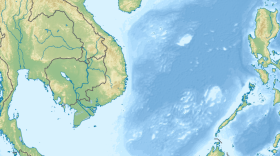Yesterday, the Supreme Court of the Philippines approved an agreement that allows American Forces to use Philippine bases for the next ten years. Manila is among the most vocal critics of China's ambitions in the area but lacks the military strength to dispute its claims. Now, that could begin to change, as we hear from Neal Conan in the Pacific News Minute.
Decades of corruption and neglect reduced the Philippines armed forces to the point where its largest naval vessel is a retired US Coast Guard cutter; its air force boasts two jet fighters. Last year, as alarm grew over China's effort to dominate the South China Sea, the Philippines asked The US for $300-million in military aid. Washington reduced that request to eighty million, still the largest to any country in South East Asia.
Now the Supreme Court ruling allows the US to rotate troops, planes and ships through Philippine bases and to position equipment there. Herminio Coloma, Junior, the spokesman for President Benigno Aquino the Third, said the agreement will introduce the country's armed forces to the most modern military equipment and allow what he called "a generational leap in our abilities."
While the US is expected to focus on those improvements, the old American bases at Subic Bay and Clark Field are perfectly positioned for US ships and aircraft to contest control of the South China Sea. In an interview with the New York Times, Zhou Feng, executive Director of the China Center for Collaborative Studies of the South China Sea at Nanjing University said, "The South China Sea will be more crowded, and the risk for a military conflict will continue to rise."
Some Filipinos fear that increased American presence could provoke just such a conflict and denounced the Agreement as an abdication of Philippine Sovereignty.





